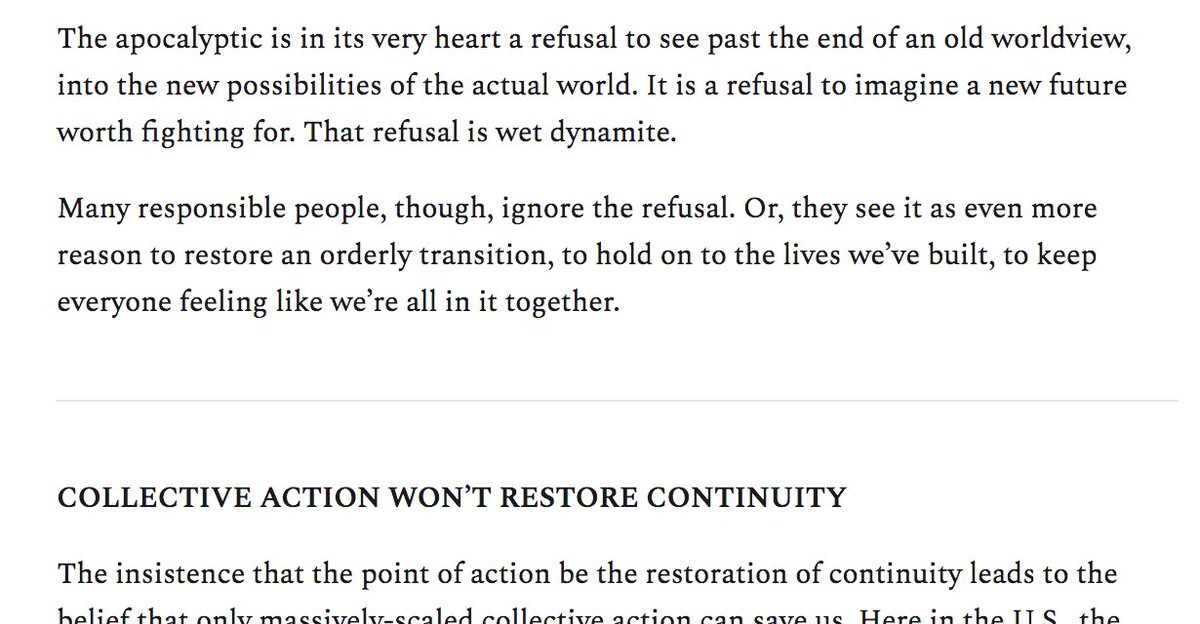
"Being too far ahead is the same thing as being wrong," and being recognized as right, at the right time — but only in hindsight — is often the same thing as being broke.
95% of the job is learning, researching, pondering, exploring, weighing out the possibilities, until we arrive at an informed intuition about where things are moving — the other 95% is articulating our intuitions in ways that make clear sense to those who did none of that work.
It is so much easier to simply toss out provocations.
It's like Tom Sawyer getting the other kids to pay to paint the fence.
It's like Tom Sawyer getting the other kids to pay to paint the fence.
Maybe I'll switch career paths.
• • •
Missing some Tweet in this thread? You can try to
force a refresh








